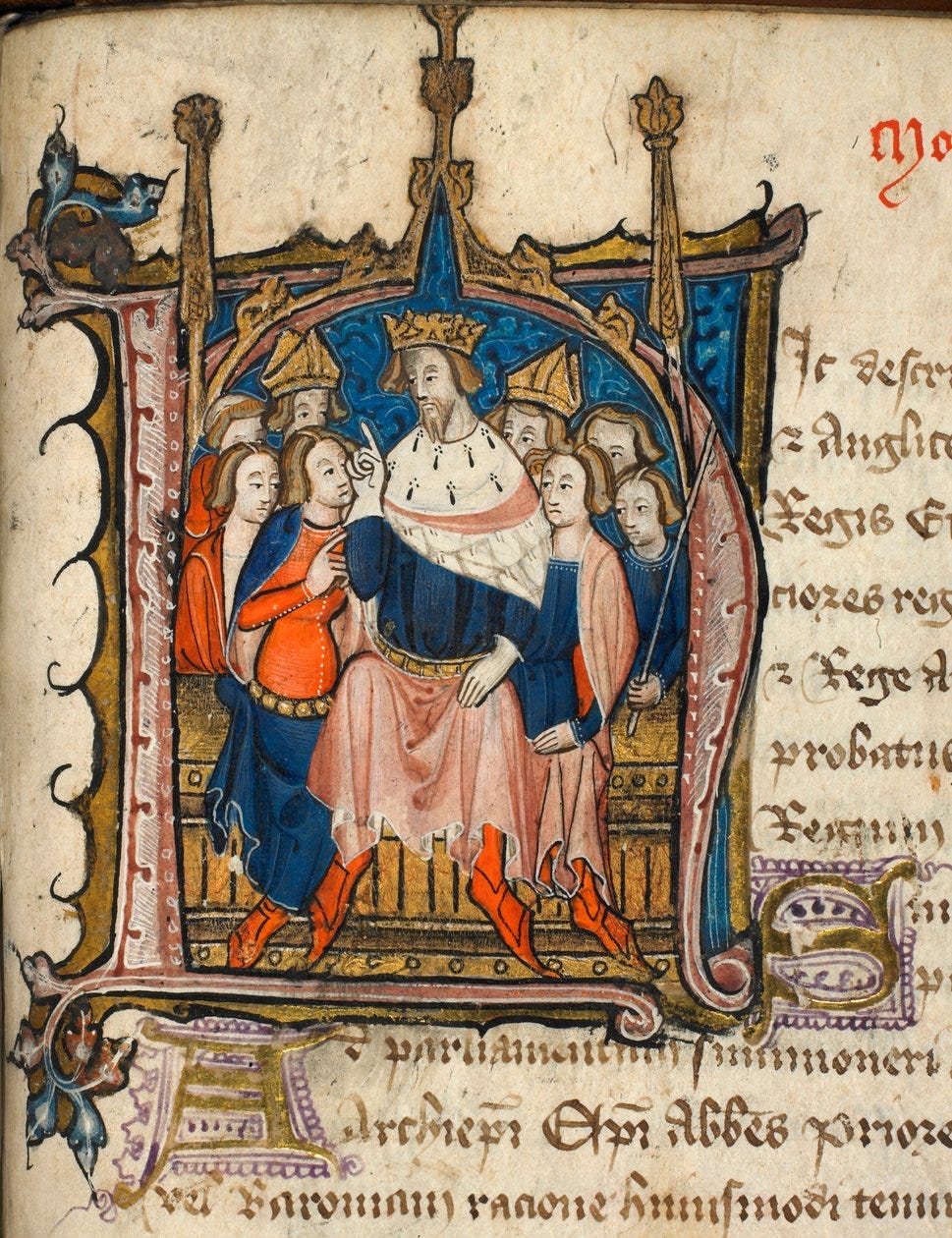This is a question that occupies a good portion of my working brain each week: how does one successfully be a medieval king? What models should he follow? Which should he avoid? To some, this may sound frivolous. For me, it taps into a more pertinent question: what makes a good leader? Context and specializations may change, but the attributes of good leadership have tended to remain the same over the centuries. Understanding the medieval qualities of good leadership aids further in the answer to this question.
In my view – and I have not read everything on this subject – the key personal qualities for medieval kingship come down to the following:
1. Courage
2. Wisdom
3. Resolution
4. Faith
The last may seem the most curious. Am I implying that kings who had greater faith in a higher power were more successful? Not necessarily. No doubt Louis IX of France, Ferdinand III of Castile, and Robert I of Scotland (Robert Bruce) were successful medieval kings, and they all were devout Christians, with the first two being Catholic saints. However, Henry III of England, Richard II of England, and my own preferred candidate for the most unfairly maligned medieval monarch, James III of Scotland, were devout rulers too, and their reigns were relatively unsuccessful. Clearly devotion to the Almighty was not a barrier to failure.
What I mean by faith is faith in oneself. The great medieval kings all seem to have occupied their office with little to no feelings of imposter syndrome. They knew they had been born or at least bred for the role, had the skills to do it, and thus possessed an inner self-belief which translated into an ease in being king. Edward III of England, the king I have studied since I was ten years old, certainly fits this model as does his chief competitor for medieval greatness in England, Henry V. Both, paraphrasing Sir Maurice Powicke, were big enough men to win the confidence of their barons and gave themselves in leadership to them so the barons gave of themselves in return. With such faith, a king could unite and lead the kingdom and with its backing go on to immense success.
Edward III of England from British Library Cotton Nero D. VI, f.72, which is a manuscript of the famous fourteenth century tract “Modus Tenendi Parliamentum” or “The Manner of Holding a Parliament.” If interested, the site Misterdrucke sells copies of this - Historiated initial 'N', beginning a section on the way of holding parliament, illustration from 'Modus Tenendi Parliamentum'
In a series of articles over the next couple of weeks, I am going to investigate the question of how to be a medieval king through a series of studies, examining this query from multiple angles. I will continue next time by analyzing in more detail the other personal characteristics of kingship I mentioned above: courage, wisdom, and resolution. But do not think this will revolve merely around the characteristics of medieval kings. I will also take time to demonstrate what a king was expected to do, what challenges he had to confront, and why the system of monarchy itself could sometimes provide an obstacle even for the most dedicated of medieval rulers. When fortune and circumstance proved fickle, even the best medieval king would find himself up against it. Watch this space for more to come.





Not the angle I expected you to take. I was expecting you to discuss how medieval people expected their kings to have faith (i.e. piety) and to perform semi-sacerdotal functions as God’s anointed. E.g. uphold orthodoxy, support the church, take back the holy land, etc.
Even though modern leaders are no longer expected to have “faith” in this sense, the public still expects its leaders to exhibit good character and take the moral high ground.
This sounds like a fascinating exercise. If I were doing it, I think I'd add a couple of extras - the first being good health because, without it, a king did not live long, was unlikely to produce an heir and often lacked the necessary military prowess to dominate his court. The second aspect I would add is the king's ability to do justice and suppress evil laws and customs in the land. Much like modern dictators, medieval kings often failed when cruel and unjust. A good king was fair, protected them from evil forces and delivered justice.